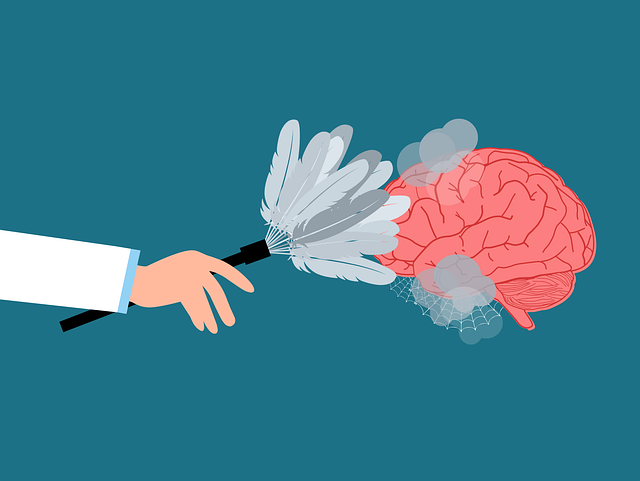Arvada Parenting Skills Therapy leverages media literacy to combat negative portrayals of mental health in the media. Through their Community Outreach Program, they educate families on critical thinking about media content, promoting empathetic understanding and reducing stigma. By combining Social Skills Training and Positive Thinking, the program equips participants with tools for stress management and builds resilience against mental health challenges. This holistic approach not only empowers individuals to seek help without judgment but also fosters a cultural shift towards accurate, compassionate representation of mental illness in society, making Arvada Parenting Skills Therapy a key advocate for positive change.
Mental illness representation in media significantly impacts public understanding and awareness. This article delves into the challenge of stigmatized portrayals, exploring strategies to promote positive mental health narratives. We discuss the profound effects of media on perceptions of mental wellness, highlighting the critical role of therapeutic approaches like Arvada Parenting Skills Therapy. By examining effective methods for more accurate and empathetic representations, we aim to foster a less-stigmatized society where mental illness is met with compassion rather than judgment.
- Understanding the Impact of Media Portrayal on Mental Health Awareness
- The Role of Arvada Parenting Skills Therapy in Challenging Stigmatized Depictions
- Effective Strategies for Promoting Positive Mental Illness Representation in Media
Understanding the Impact of Media Portrayal on Mental Health Awareness

The media plays a significant role in shaping public perception about mental health. Positive and accurate representation of individuals with mental illness can foster understanding, reduce stigma, and encourage those struggling to seek help. Conversely, negative or stereotypical portrayals can perpetuate misconceptions, leading to further isolation and discrimination. In Arvada, parenting skills therapy programs have recognized this impact and incorporate media literacy as a tool for promoting mental wellness among families. By analyzing and discussing media content together, therapists and parents can challenge harmful narratives and replace them with more nuanced, empathetic representations that support better communication strategies for managing stress and maintaining mental health. This proactive approach not only equips individuals with the skills to navigate media messages but also contributes to a broader cultural shift towards more accurate and compassionate understanding of mental illness.
The Role of Arvada Parenting Skills Therapy in Challenging Stigmatized Depictions

Arvada Parenting Skills Therapy plays a pivotal role in challenging stigmatized depictions of mental illness in media. Through its innovative Community Outreach Program Implementation, the therapy offers a holistic approach that combines Social Skills Training and Positive Thinking techniques. By engaging directly with communities and educating both caregivers and individuals affected by mental health issues, Arvada Parenting Skills Therapy fosters an environment where understanding and empathy thrive. This proactive strategy not only reduces the stigma associated with mental illness but also empowers individuals to seek help without fear of judgment.
The program’s effectiveness lies in its ability to provide practical tools for navigating mental health challenges while promoting a positive mindset. By participating in Arvada Parenting Skills Therapy, families gain insights into managing symptoms and building resilient coping mechanisms. This community-centric initiative ensures that those affected by mental illness are not only supported but also become advocates for accurate representation, leading to a more inclusive and compassionate society.
Effective Strategies for Promoting Positive Mental Illness Representation in Media

Media has a powerful influence on shaping societal perceptions, especially regarding mental health. To challenge negative stereotypes and promote understanding, several effective strategies can be implemented. One key approach is to encourage diverse storytelling, ensuring that narratives about mental illness are nuanced and authentic. This involves featuring characters with various conditions, showcasing their strengths, and humanizing their experiences. By doing so, media can break down barriers and foster empathy among audiences, including parents seeking Arvada parenting skills therapy for their children’s emotional development.
Additionally, promoting accurate representation goes hand in hand with educating creators and influencers about mental health. Encouraging the involvement of individuals with lived experiences, such as those who have overcome challenges related to emotional intelligence or coping skills development, can bring authenticity to media content. This practice not only ensures accuracy but also empowers individuals, potentially inspiring others. Self-esteem improvement is another crucial aspect that media can contribute to by portraying characters and celebrities openly discussing their struggles and successes, thus normalizing conversations around mental health.
Media plays a pivotal role in shaping societal perceptions of mental illness. By employing strategies such as those offered by Arvada Parenting Skills Therapy, we can challenge stigmatized depictions and foster more accurate, compassionate representations. Through responsible storytelling and increased media literacy, we have the power to enhance mental health awareness and create a more inclusive, understanding society. These efforts are essential steps towards normalizing conversations about mental illness and encouraging individuals to seek support when needed.












